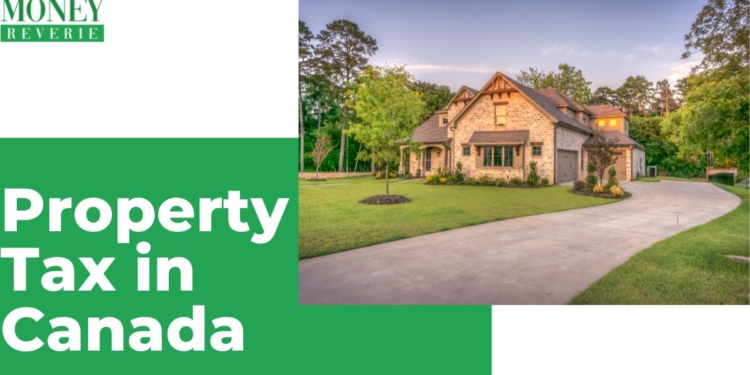Property taxes are levies collected by municipal governments from property owners in Canada to fund public services, ranging from schools, police, and fire station to roads and sewers. It is one of the major sources of funding for Canadian local governments.
Property taxes in Canada are usually calculated based on the residential rates and the property’s market value.
This article will discuss how property taxes work in Canada, the different rates by province, how to calculate and pay your property taxes, and many more.
Read on to learn more.
How Does Property Tax Work in Canada?
Property tax is a recurring fee charged by municipal governments in Canada from homeowners. Unlike income and sales taxes which are based on your financial flow, property taxes in Canada are paid based on an asset you own.
So if you own any real estate (residential, commercial, or industrial) in Canada, you must pay property taxes to your municipal government. The assessment of the market value of your property and the municipal residential rates determines your property tax.
The amount you pay as property taxes usually varies by community. Every year, communities in Canada determine their property tax rates after carefully assessing how much revenue they need to meet their budget.
While deciding their budget and official property tax rate for the year, municipalities usually set Interim Property Taxes for the first half of the year.
The interim property tax is collected based on the previous year’s property taxes. However, if the official property tax rate for the year is higher than the previous year’s, residents will have to pay more for the second half of the year to make up for the difference, and if it is lower, they will pay less.
Property taxes in Canada are often made quarterly, semi-annually, or annually.
What Are The Property Taxes Rates In Canadian Provinces and Territories?
Canadian municipalities determine their property tax rates once every year. But it generally ranges from 0.5% to 2.5%.
This table shows the property tax rates by province and city in Canada. It also shows how much property tax you will pay if the assessed market value of your property is $250,000, $500,000, or $1,000,000.
Provinces Residential Tax Rate Taxes for your home’s assessed value of $250,000 Taxes for your home’s assessed value of $500,000 Taxes for your home’s assessed value of $1,000,000 Alberta Calgary 0.63573% $1,589 $3,179 $6,357 Edmonton 0.86869% $2,172 $4,343 $8,687 Lethbridge 1.11067% $2,777 $5,553 $11,107 British Columbia Vancouver 0.24683% $617 $1,234 $2,468 Kelowna 0.52605% $1,315 $2,630 $5,260 Victoria 0.52035% $1,301 $2,602 $5,204 Abbotsford 0.51300% $1,283 $2,565 $5,130 Manitoba Winnipeg 1.24871% $3,122 $6,244 $12,487 New Brunswick Saint John 1.78500% $4,463 $8,925 $17,850 Fredericton 1.42110% $3,553 $7,106 $14,221 Nova Scotia Halifax 1.10850% $2,771 $5,542 $11,085 Newfoundland & Labrador St. John’s 0.73000 $1,825 $3,650 $7,300 Saskatchewan Saskatoon 0.86562% $2,164 $4,328 $8,656 Regina 1.07445% $2,686 $5,372 $10,745 Quebec Montreal 0.76720% $1,918 $3,836 $7,672 Quebec City 0.87780% $2,195 $4,389 $8,778
To get the most current information about tax rates in your province, territory or city in Canada, please check your local government website.
How To Calculate Your Property Taxes
Property taxes are not determined by how much you bought your house or the size of the house. It is calculated by multiplying the property’s assessed market value by the municipality’s property tax rate, often known as the “Mill Rate”.
Suppose your home has a market value of $350,000, and the municipality’s property tax rate is 1.67%. In that case, your property tax will be:
$350,000 x 1.67% = $5,845
So, you would be required to pay $5,845 as property taxes for that year.
How Do I Pay My Property Taxes in Canada?
There are two ways you can pay your property taxes in Canada.
Pay directly to your municipal government
Your municipal government will send your property tax bill by mail, and you can choose to pay by mail, phone, or online.
However, you must ensure that you pay your property tax on time if you choose this option. You can set up pre-authorized payments with your financial institution to save time.
Pay through your mortgage
When paying property taxes, many homeowners opt for the convenience of including it in their monthly mortgage payments. The advantage of paying property taxes through the mortgage is the ability to make small payments over the year and ease of budgeting as it’s already included in the mortgage payment.
Your lender divides your annual property tax by the number of times you pay the mortgage in a year (12 if you pay monthly, 26 if you pay biweekly) and adds it to your mortgage payment. The lender then deposits that fee into a separate tax account they have created for you, so that they may pay your property taxes from that account when due.
If there isn’t enough money in your tax account to pay your property tax, the lender still pays the property tax bill but will send you a notice to deal with the shortfall. You can then choose to pay the shortfall amount at once or spread the shortfall amount over the next year’s mortgage payments (sometimes with added interest).
However, if you have an overage in your tax account because your municipality charged less property taxes than anticipated or you overpaid your tax component payment to avoid a shortfall, then your lender may decrease your tax component payments and overall mortgage payments.
For first-time homebuyers or those with less than 20% equity on their home, paying property taxes through the mortgage may be mandatory as it protects the lender in case of default on property tax payments.
What Happens If You Default on your Property Tax Payments in Canada?
If you fail to pay your property taxes on or before the due date, your account will become overdue. A Statement of Account showing the overdue amount you owe will be mailed to you each month.
Most times, if you don’t make property tax payments, a lien might be placed on the title of your property. A lien is a legal claim from the government against your home. So if you ever file for bankruptcy, the government can claim your unpaid property taxes against your home.
You will have to face penalties for defaulting on your property tax payments. Provinces in Canada have different penalties for defaulters.
You will be charged 1.25% monthly interest in Toronto on unpaid property taxes. In BC, collection actions such as 3% monthly interest on your unpaid property taxes, seizing your personal belongings, forfeiture of your property, etc., will be taken.
Final Thoughts on Property Taxes in Canada
If you plan to own a property in any province or territory in Canada, it is important to find their property tax rate. This will help you to plan and maintain a firm grip on your finances.
If you have difficulty with your property tax payments, you should contact the Canada Revenue Agency (CRA). They can help you with solutions to lighten your burden. They may set up partial payments or provide alternate payment schedules.
Ensure you reach out to the CRA on time because not meeting up with your property tax payments could negatively affect your credit rating.









